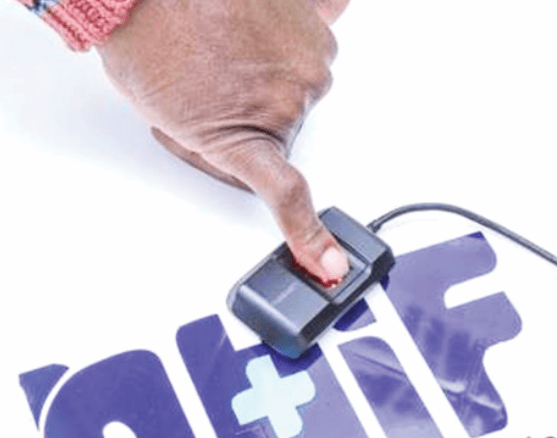How fraudulent claims fleeced NHIF of billions
By Mercy.Mwai, June 18, 2024Lawmakers have revealed how the National Health Insurance Fund (NHIF) was defrauded of billions of shillings in a scheme that involved collusion between the insurer’s employees and health providers and the lodging of unverifiable, fictitious and fraudulent claims.
In a detailed report tabled in the National Assembly, the Health Committee revealed that the fraud also involved NHIF beneficiaries who were allowed to demand refunds of money that they had not spent.
The committee, chaired by Endebess MP Robert Pukose, also revealed that the licensing and accreditation of health facilities and health service providers was flawed. Some health facilities were wrongly categorised in higher levels that did not match their capacity, infrastructure and staffing levels.
The NHIF quality assurance mechanism, the report says, did not have the necessary competencies and capacity to effectively and efficiently ensure proper accreditation of health service providers and authentication of claims lodged, while an expensive ICT system the insurer used and in which it was planning to invest more was prone to mismanagement and fraud.
Beneficiaries enticed
The report also shows that service providers enticed beneficiaries to register their biometrics at hospitals and the data was later used to seek payment of non-existent claims from NHIF.
Biometric registration of members started after NHIF contracted Munishram International Machines Ltd (MIBM) on August 15, 2017 for a period of four years to July 2021 for Sh 1.76 billion.
MIBM assigned this service to Nestor Limited at an annual contract sum of Sh439.3 million, to which NHIF consented, a move that later saw the insurer, in 2021, carry out three extensive countrywide field biometrics registration drives that netted 3.3 million beneficiaries that year. As of August 15 last year, the total number of biometrically registered beneficiaries was 7.8 million.
The report says: “Members of the NHIF confirmed to have been referred by colleagues to register their biometrics at a fee of Ksh7,000 to Ksh100,000. The use of service providers, especially private service providers, to register biometrics for NHIF contributors was a glaring avenue for exploitation of the Fund.”
The report adds: “The Committee observed that there was a possible conspiracy between the service providers and members of the public to defraud NHIF through fake claims.”
Mission threatened
The report comes after former acting NHIF chief executive Samson Kuhora said under oath that fraud and corruption had beset the healthcare sector and that this threatened NHIF’s mission of providing equitable healthcare access.
An impact assessment study presented to the NHIF board in 2020 – a copy of which was submitted to the committee – estimated the NHIF medical fraud risk to be 29.9 percent.
Following these revelations, the committee ordered that some of the hospitals that benefited from the fraud be closed. Lawmakers also directed the Directorate of Criminal Investigations (DCI) to, within three months, investigate the possible collusion between service providers and the NHIF’s Claims Management Division, and in particular the manager of that division and service providers in the pre-authorisation of overseas treatment.
It also wants the Ethics and Anti-Corruption Commission (EACC) to conduct a forensic audit of the claims management system so as to help deter fraud.
The report urged the national insurer, in assessing the suitability of NHIF staff, “consider the observations and recommendations of this report on internal audit, pre-authorisation and claims management division as well as the report of the EACC and DCI on the involvement of the staff of the NHIF in fraudulent activities”.
Hospitals targeted
Among hospitals the lawmakers want closed down are Joy Nursing and Maternity Eastleigh Limited, Amal Hospital Limited, Beirut Pharmacy and Medical Centre.
On Joy Nursing and Maternity, MPs want the hospital shut on the grounds that it is located in residential building and the stairs were shared with residents and that it did not have written contractual agreements with the alleged 17 orthopaedic surgeons who were providing services at the facility.
Lawmakers also said it has limited space in the reception, waiting and consultation rooms, and in procedure rooms, and has inadequate infrastructure for the level granted by the Kenya Medical Practitioners and Dentists Council. They added that it has no Class D licensed lab, blood transfusion unit, radiology unit, maternity theatre, advanced life support for emergency care, and mortuary or autopsy services.
The facility also does not have resident physicians, paediatricians, gynaecologists or surgeons as required by the Kenya Quality Model for Health guidelines.
On Amal hospital, lawmakers said it was not open when the Committee visited, though neighbours said it was operational.
Regarding Beirut Pharmacy and Medical Centre, the committee said it was deserted when lawmakers visited, with no patients, furniture, equipment or stalls.
As for Afya Bora Hospital Annex, although the committee wants NHIF to lift its suspension and pay outstanding verifiable claims, it also proposed that disciplinary action be taken against NHIF staff involved in the verification of claims, including the claims managers, the branch manager and the quality assurance officers at the insurer’s Mwea branch.
